|
|
Conference
- Panels
-
Possible Panels
- Facebook
Event -
Education -
Volunteer - [Planning]
International Online Conference on:
How Might We Build a
Culture of Empathy?
Permanently Ongoing
Sub Conference: The Workplace, Business and
Corporation
http://j.mp/Kssiwt
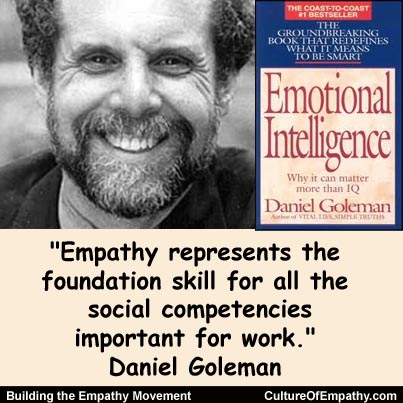
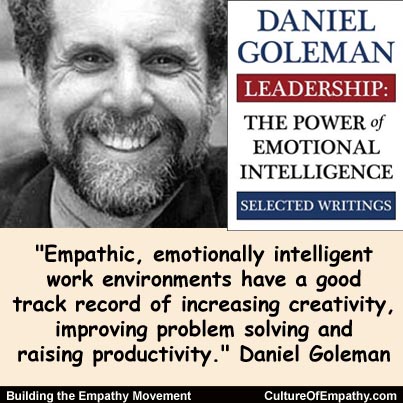
|
|
|
|
|
|
|
Empathy Deficit Disorder:
Healing from Our Mix-ups About Work, Home, and Sex
Jackie Acho |
|
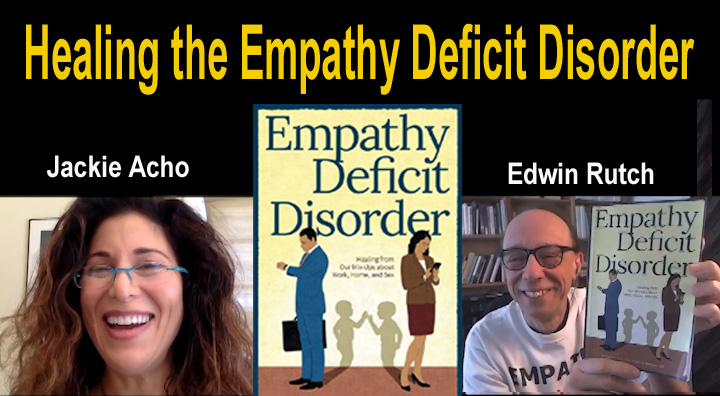 |
|
Jackie Acho
is President of The Acho Group, a strategy and leadership consulting firm.
Prior to founding The Acho Group in 2005, she was a Partner in the Midwest
Complex of McKinsey & Company. She has worked for technology, industrial,
academic, nonprofit, and economic development clients on a variety of
issues, with particular focus on growth and innovation, strategy, and
leadership development for more than 25 years. Jackie is co-author
or
Empathy Deficit Disorder: Healing from Our Mix-ups About Work, Home, and
Sex.
The empathy deficit disorder is the result of an
economic system built on the separation of work and home. This separation
has devalued the most foundational form of empathy - the emotional,
embodied, so-called affective empathy that is our birthright.
As a result we have forgotten who we are...

(Source:
Wikipedia Dance)
By aligning our new external reality with our innermost humanity,
co-creation offers a solution to our empathy deficit disorder and an
opportunity to unite our divided world. Empathy is that powerful.
Sub
Conference: Workplace
|
|
|
|
|
|
|
|
Putting
Empathy
into
Business and Artificial Intelligence
Minter Dial |
|
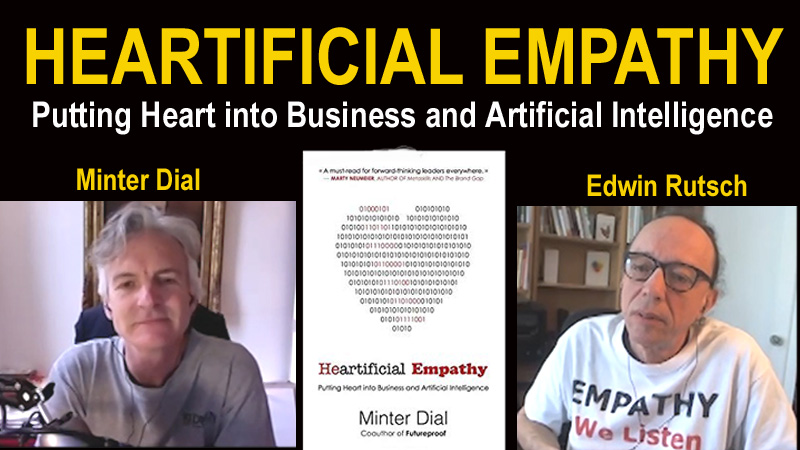
|
|
Minter Dial is a thought-leader, author, consultant and professional speaker.
He is president and founder of Digitalproof Consultancy, a strategic firm
providing digital and brand consulting to clients including Kering Group,
Samsung, Google and L'Oreial.
Minter is author of,
Heartificial Empathy, Putting Heart into Business and Artificial
Intelligence. The objective of this book is to explore
ways to increase empathy in business and machines.
For business, empathy may be the biggest untapped lever
for productivity, customer fidelity and long-term profitability!

Source
Wikipedia
Here are five of the best ways to strengthen your empathy muscle and
abilities:
1. Listen. Practice active listening, by reformulating
what you hear out loud...
2. Explore Differences....
3. Read Fiction...
4. Do Mindfulness...
5. Know Why....
Sub Conference: Workplace |
|
|
|
|
|
From Command to Empathy
Suman Ghose |
|
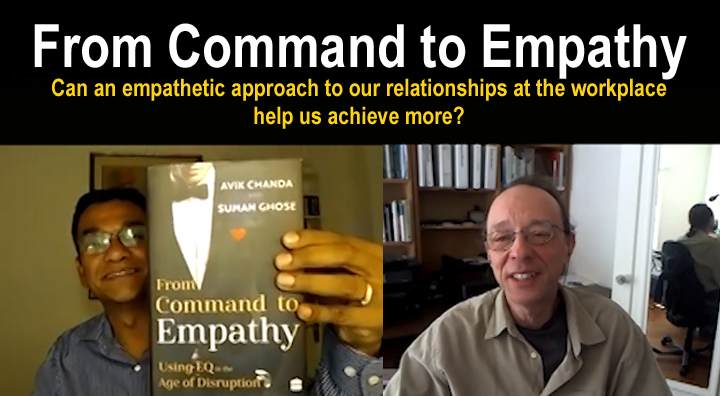 |
|
Suman Ghose holds an undergraduate degree from Indian Institute
of Technology, Kharagpur & an MBA from Indian Institute of Management,
Bangalore.
He has 22+ years'
corporate work experience in some of the world's top
multinational companies such as Cadbury's, Intel, Philips and PwC.
Suman's focus areas are Leadership Development, Creative Problem Solving
(including Decision Making & Cognitive Biases), Design Thinking (trained
on Stanford D-school's methodology) & Emotional Intelligence (Personal and
Social Competence).
He is co-author of
From Command to Empathy: Using EQ in the Age of Disruption.
In a world characterized by globalization
and rapidly evolving technology, change is a given. The primary workforce
is evolving and is now dominated by millennia's who seek purpose and
empathy
-
a phenomenon
that
top management grapples with.
Sub Conference:
Workplace |
|
|
|
|
|
Practical Empathy: For
Collaboration and Creativity in Your Work
Indi Young and Edwin Rutsch
|
|
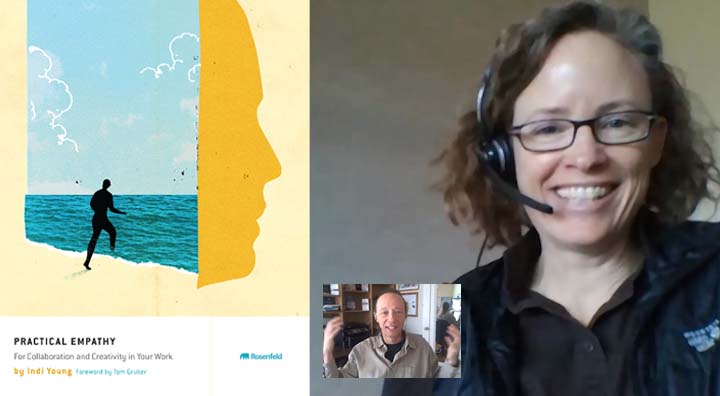 |
"Indi Young is an expert consultant in user experience,
offering her services in empathy research, strategy, and redesign to
organizations around the world. She has helped with digital applications,
services, process design, and content strategy. She focuses on helping
engineers, designers, and stakeholders tackle the hardest problems by
understanding the people they're trying to support. Indi offers workshops
for any size group and provides consulting on an affordable basis. She
offers her services directly and also through the Rosenfeld Media Experts
group." Indi is author of,
Practical
Empathy: For Collaboration and Creativity in Your Work. (Put
in the promotion code "CULTURE" for a book discount on the Rosenfeld
publisher website)
"Conventional product development focuses on the solution.
Empathy is a
mindset that focuses on people, helping
you to understand their thinking
patterns
and perspectives."
From the book forward.
"Indi Young's book is a practical manual for practicing
empathy, which is a skill, not an innate talent. Empathy is a mindset that
can be learned and improved with practice. There are best practices,
techniques, and tools that help you get your own ego out of the picture and
focus on what things are like from another person's perspective. It is not
easy to do really well, but it is worth doing really well! And Indi's book
shows you how to do it.
Practical Empathy offers advice on how to practice an empathetic mindset
toward other people involved in the conception, design, or implementation
of a product."
Sub Conference: Human-Centered-Design and Business
and Work |
|
|
|
|
|
The Practice of Empathy-Based Management
George Langelett |
|
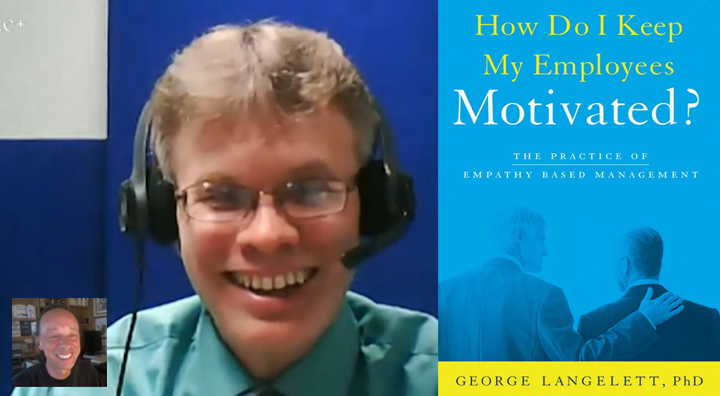 |
|
George Langelett
is a professor of management and economics at South Dakota State
University in Brookings. He teaches classes in management, small business
management, human resource management, marketing research, and
macroeconomics. George is author of How Do I Keep My Employees Motivated?
The Practice of Empathy-Based Management.
From the book description, "Every person in your organization desires to be understood and accepted.
The purpose of this book is to teach you how to empathize with each of
your employees, and create a better work environment. When work days
become mundane, you will learn how to create a sense of connection with
your employees. During stressful times, you can display empathy to calm
and reassure each employee, so that they can think clearly and problem
solve.
How Do I Keep My Employees Motivated? provides clear, specific techniques
that teach you how to empathize and create an atmosphere where everyone
working for you feels accepted and understood. Through empathy you will be
able to create an environment that results in professional growth."
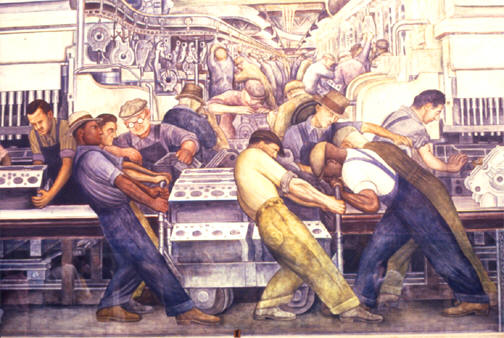
Detail of Diego Rivera fresco,
'Detroit
Industry, or Man and Machine' (Wikipedia)
"My purpose in writing this book is to explain the
importance of empathy in management practices
and how managers can learn to apply empathy
in order to alter the work environment in a
positive manner for everyone involved."
Sub Conference: Workplace, Management
and Business
|
|
|
|
|
|
Empathetic Marketing:
How to Satisfy the 6 Core
Emotional Needs of Your Customers
Mark Ingwer |
|
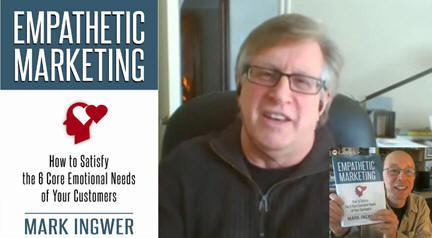 |
|
Mark Ingwer is a business psychologist and the founding
partner of Insight Consulting Group, a global marketing and strategy
consultancy specializing in consumer and business insights. He has over 25 years experience applying his unique blend of
psychology, marketing, and business acumen to helping companies optimize
their brand and marketing strategy based on an in-depth understanding of
their customers.

Marco Polo travelling
(wikipedia)
The business community...
often it fails to practice empathy in its
marketing
and thus falls short of truly connecting
with customers.
Mark is author of Empathetic Marketing:
How to Satisfy the 6 Core Emotional Needs of Your Customers. He
writes,
"A business that invests in empathy devotes itself to understanding the
emotional needs and motivations of its customers, and aligns itself to
meet them. Companies have increasingly embraced the role of emotion in
selling products and services, but often merely pay lip service to its
importance without understanding how to harness it."
Sub Conference: Workplace |
|
|
|
Organizing through Empathy: Introduction: Kathryn Pavlovich,
Keiko Krahnke
|
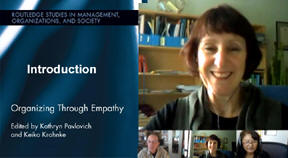 |
|
Kathryn Pavlovich is Associate Professor at the University of Waikato,
New Zealand. She has a special interest in conscious capitalism,
enterprise, self-leadership, ethics and spirituality.
Keiko Krahnke is Associate Professor at the University of Northern
Colorado. She has research interest in empathy, systems thinking, ethics,
and spirituality.
|
|
In this interview, editors Kathryn Pavlovich and Keiko Krahnke give
a broad overview of the book and the individual chapters.
Organizing
through Empathy. "This book challenges the existing paradigm of
capitalism by providing scientific evidence and empirical data that empathy
is the most important organizing mechanism.... Empathy dissolves the boundaries between self and
others, and feelings of altruism towards others are activated. This
process results in more compassionate and caring contexts, as well
as helping others in times of suffering. This book provides evidence
from neuroscience and quantum physics that it is empathy that connects
humanity, and that this awareness can create a more just society.
Sub
Conferences: Workplace and Science |
|
|
|
|
Organizing
through Empathy: Chp. 10: by Lori A. Gano-Overway
The Caring Climate: How Sport Environments Can Develop Empathy in Young
People
|
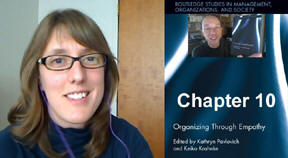 |
|
Lori A.
Gano-Overway is Associate Professor in Health and Exercise Science
interested in the psychosocial aspects of physical activity.
Lori teaches sport psychology, health and exercise
psychology, motor behavior, research methods, and administration of sport
and physical education programs
|
|
Organizing
through Empathy. "This book challenges the existing paradigm of capitalism
by providing scientific evidence and empirical data that empathy is the
most important organizing mechanism."
"By
developing empathy, youth learn to attend to emotional cues, listen,
become sensitive to others, understand another's perspective, and read
the needs of others, which allows them to work and live with others in
community and act with compassion toward others' needs."
Sub
Conferences: Workplace and Science |
|
|
|
Organizing through Empathy: Chp. 12
by Peter Senge and Keiko Krahnke
Transcendent Empathy: The Ability to See the Larger System
|
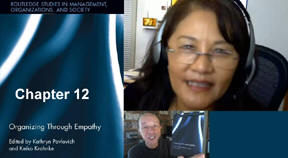 |
|
Keiko Krahnke is Associate Professor of Management;
Business Communications at University of Northern Colorado in the Montfort
College of Business. Areas of research interests include
spirituality and business, systems thinking, Appreciative Inquiry, and
corporate citizenship.
Peter
Michael Senge is an American scientist and director of the Center for
Organizational Learning at the MIT Sloan School of Management. |
|
"We suggest that empathy is something broader than knowing
or feeling another's psychological or emotional state. The fundamental
concept of empathy is to care about another as if you were in the shoes of
the other. Our purpose here is to expand this caring to the larger living
systems of which we are part. We propose the notion of "transcendent
empathy" as the ability to see these larger systems in time and space, to
move beyond mere intellectual understanding to embrace "system sensing" as
a doorway to other awareness of what exists now and to future
possibilities."
Sub
Conferences: Workplace and Science |
|
|
|
Keiko
Krahnke: How to Build a Culture of Empathy in Business
|
 |
|
Keiko Krahnke is
Associate Professor of Management; Business Communications at
University of Northern Colorado in the Montfort College of Business.
Areas of research interests include spirituality and business, systems
thinking, Appreciative Inquiry, and corporate citizenship. Currently
interested in learning about human consciousness and teaching empathy and
compassion. |
She says, Empathy is wholeness and knowing that we are all part of one
field and are interconnected. The opposite of Empathy is being trapped in narcissism.
Coauthor: Empathy, Connectedness and Organisation. 'In
this paper, we conceptually explore the role of empathy as a
connectedness organising mechanism. We expand ideas underlying positive
organisational scholarship and examine leading-edge studies from
neuroscience and quantum physics that give support to our claims. The
perspective we propose has profound implications regarding how we
organise and how we manage. First, we argue that empathy enhances
connectedness through the unconscious sharing of neuro-pathways that
dissolves the barriers between self and other.'
Sub Conferences:
Education and
Workplace
|
|
|
Anita
Nowak: Dissertation: Pedagogy of
Empathic Action as Informed by Social Entrepreneurs
|
 |
|
In this interview, Anita Nowak talks about her PhD
dissertation titled 'Introducing a Pedagogy of Empathic Action
as Informed by Social Entrepreneurs.''
"I contend that our innate human empathy can be leveraged as a tool of
social change through the practice of Empathic Action. Furthermore I argue
that a Pedagogy of Empathic Action offers the best means by which to
foster this." |
|
The dissertation
addresses five questions;
-
What is empathy?
-
What is Empathic Action?
Acting on empathy for another/others.
-
What group of individuals is already
practicing Empathic Action?
-
How might narrative inquiry
interviews with such individuals inform a Pedagogy of Empathic Action?
-
What are the broad strokes of such a
pedagogical approach?
Sub Conferences:
Education and
Workplace
|
|
|